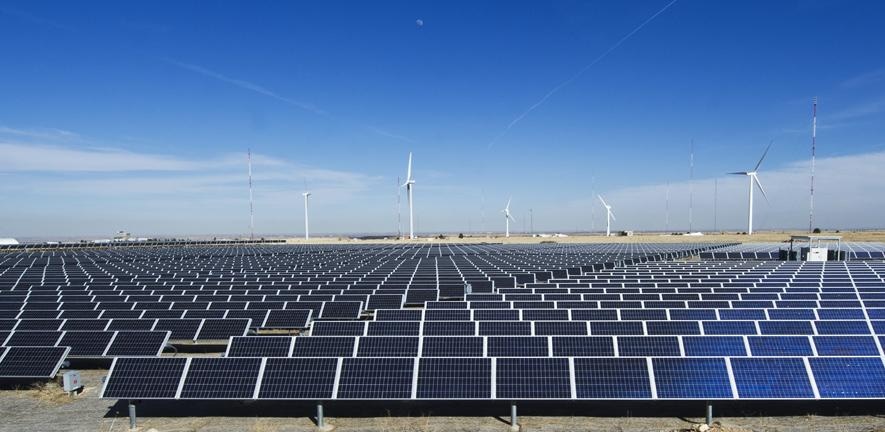Mar 19 2019
The partnership between government and startups could help overcome the climate challenge while developing small businesses. Scientists state that discoveries could enlighten discussions on Green New Deal or any “forward-looking policy package.”
 (Image credit: University of Cambridge)
(Image credit: University of Cambridge)
Most recent study on hundreds of new green technology companies in the United States demonstrates that the patenting activity of a startup rises by more than 73% on average whenever they team up with a government agency on “cleantech” development—from next-generation solar cells to new energy storage materials.
In addition, the research found that whenever a cleantech startup licensed a technology created by a government agency, the company obtained over twice the number of financing deals on an average in comparison with similar startups: a 155% rise after a year of the removal of a license.
According to scientists, cooperation with private firms and universities is a common means for several startups; however, government partnerships are considerably underrated with regards to green technologies.
Although the role of public-private partnerships in sectors like IT and biotech is well established, the researchers state that so far, there has been a dearth of data on the effectiveness of these collaborations in cleantech. The work is reported in the journal Research Policy.
Our findings suggest that some of the signs commonly used to track innovation and business success, such as patents and financing, increase when new cleantech companies partner with US government departments or labs.
Laura Diaz Anadon, Study Co-Author and Professor, Climate Change Policy, University of Cambridge.
Government research laboratories have a major role to play in the climate challenge but also the growth of small businesses—twin objectives at the heart of many policy discussions, such as the Green New Deal in the United States.
Prof. Claudia Doblinger, Study First Author, Technical University of Munich.
The investigators developed a new dataset of 657 US cleantech startups and over 2000 collaborations set up by those companies between 2008 and 2012, to measure the various results for public and private partnerships.
Nearly 66% of the startups were below five years old in 2008, with the remaining 34% started during the chosen study period. The study involved companies across the sustainable sector: from wind to marine power, and recycling to batteries.
Besides the advantages seen in patenting and investment, investigators also found that collaborations with some of the stronger innovation results were beyond major tech hubs like Silicon Valley—indicating the potential for building “regional ecosystems.”
For instance, the National Renewable Energy Laboratory (NREL), part of the US Department of Energy located in Colorado, is a “prominent example of government organizations in the US partnering with cleantech startups,” say researchers.
NREL which played a key role in the development of green technologies worked during the 2000s with startup companies in “thin film” such as First Solar, which turned out to be the biggest manufacturer of Cadmium Telluride solar technology in 2009.
Scientists show that NREL has granted over 260 licenses since 2000, and this research reveals the value such government agencies have particularly on startups.
The authors of the study argue that the facilities, scale, and longer term viewpoints of state agencies, such as the US Department of Energy and its 17 national laboratories, naturally complement the nimble startups that can find out and adapt technological advancements to market possibilities quickly.
Governments can and should have longer-term perspectives when compared to the private sector, and thus play a critical role in energy innovation. Beyond grants and supporting the early markets, it is the joint development and transfer of knowledge that government agencies are able to foster with startups that make a difference. As the US Congress and civil society prepare to debate the substance of the policies like the Green New Deal, facilitating public-private partnerships could well be an important, and relatively inexpensive, part of any forward-looking policy package.
Prof. Kavita Surana, Study Co-Author, University of Maryland.
Doblinger suggests that to forge lasting partnerships with promising businesses, government agencies should test out incentives that promote joint projects.
“Initiatives such as investing more in technology transfer capabilities, starting entrepreneurs in residence programs, or allowing government scientists to take temporary leave to work with a private firm, could reduce information asymmetry and provide incentives to researchers,” she stated.
Anadon believes that the lessons from the study are valuable with regards to national context outside the United States.
For the agencies of any government to successfully work with startups, sufficient and stable funding is vital—along with technology transfer and communication support. Our findings should be taken into consideration whenever funding for public research into sustainable energy is being debated. Cleantech that comes from public-private partnerships will be essential for meeting global climate and sustainability goals.
Laura Diaz Anadon, Study Co-Author and Professor, Climate Change Policy, University of Cambridge.